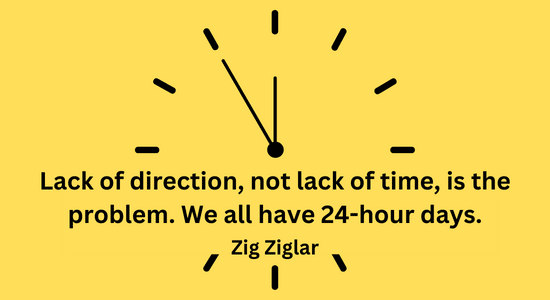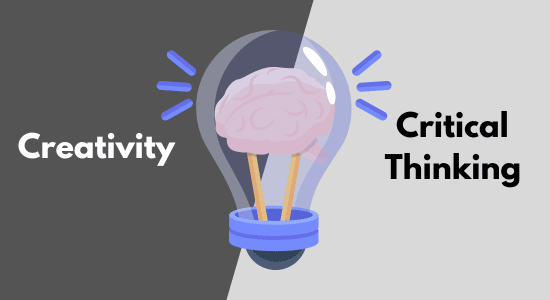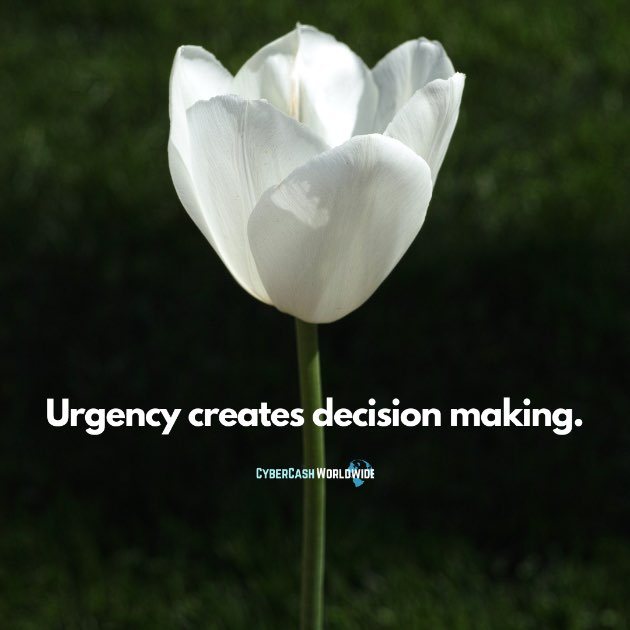In case you don’t know, self-development is one of the most lucrative affiliate niches. But it covers very broad areas too. If you’re looking to share your life experience through blogging and monetize it, you’d better narrow down the niche before you do anything else. Because you are going to help others improve their skills, learn things that you know but are new to them, and engage in meaningful conversions along the way. You should really find out what speaks out from your heart the most, and go for that one. Not “self-development” in general.
So here’s a list of some of the best self-development niches to consider sharing online. Which one has the longevity in terms of your online business - it’s your choice!

#1 Health and Wellness
The health/wellness niche is established on its own, and there are hundreds of micro-niches under the umbrella. For example;
- Fitness and Exercise: This niche focuses on various fitness activities, such as weightlifting, cardio, yoga, Pilates, CrossFit, and more.
- Nutrition and Diet: This niche covers healthy eating, weight loss, specialized diets (e.g., vegan, gluten-free), meal planning, and nutritional supplements.
- Mental Health and Psychology: This niche addresses mental well-being, stress management, anxiety, depression, mindfulness, meditation, and personal development.
- Alternative and Holistic Health: This niche encompasses natural and alternative healing approaches like acupuncture, herbal medicine, homeopathy, Ayurveda, and energy healing.
- Weight Loss and Healthy Living: This niche concentrates on weight loss strategies, healthy lifestyle habits, healthy recipes, and overall wellness tips.
- Self-Care and Mindfulness: This niche emphasizes self-care routines, mindfulness practices, relaxation techniques, sleep improvement, and stress reduction.
- Beauty and Skincare: This niche focuses on skin care routines, natural beauty products, anti-aging treatments, makeup tips, and beauty hacks.
- Women's Health: This niche covers women-specific health concerns like reproductive health, pregnancy, fertility, menopause, hormonal balance, and breast health.
- Men's Health: This niche addresses men-specific health issues like fitness, nutrition, sexual health, prostate health, hair loss, and mental well-being.
- Aging and Senior Care: This niche provides information on healthy aging, senior care, age-related diseases, cognitive health, mobility, and social connections for seniors.
- Chronic Illness and Disease Management: This niche focuses on specific chronic illnesses like diabetes, heart disease, autoimmune conditions, and cancer, and provides guidance on managing symptoms and improving quality of life.
- Wellness Travel: This niche combines travel and wellness, promoting retreats, spa destinations, wellness resorts, and experiences that prioritize relaxation, rejuvenation, and self-improvement.
Makes you realize it’s hard to pick, doesn’t it!? Let’s keep going.
#2 Relationship Advice
If you're like most people, you've probably had your fair share of ups and downs when it comes to relationships. And while there's no surefire way to guarantee a happy and healthy relationship, there are certain things you can do to increase your chances of success.
Relationship advice is indeed a popular and valuable niche within the realm of health and wellness. Many people seek guidance and support when it comes to navigating romantic relationships, friendships, family dynamics, and even professional relationships. Providing insightful and practical advice in this area can be highly beneficial to people's overall well-being and happiness.
Within the relationship advice niche, you could focus on various sub-topics, such as:
- Dating and Romance: Offering tips on finding compatible partners, building healthy relationships, navigating the early stages of dating, and fostering romance.
- Marriage and Long-Term Relationships: Providing advice on maintaining a strong and fulfilling marriage or long-term partnership, improving communication, resolving conflicts, and keeping the love alive.
- Breakups and Divorce: Assisting them in coping with breakups or divorce, managing emotions, and offering guidance on healing and moving forward.
- Family Dynamics: Addressing issues related to family relationships, such as parenting challenges, sibling dynamics, and dealing with extended family members.
- Friendships and Social Connections: Offering advice on building and nurturing meaningful friendships, resolving conflicts with friends, and creating a supportive social circle.
- Workplace Relationships: Providing guidance on navigating professional relationships, handling conflicts with colleagues or superiors, and promoting a positive work environment.
- LGBTQ+ Relationships: Offering specialized advice on relationship dynamics, coming out, family acceptance, and addressing unique challenges faced by the LGBTQ+ community.
- Intimacy and Sexual Health: Discussing topics related to sexual health, intimacy, consent, communication, and maintaining a healthy and satisfying sex life.
#3 Interpersonal

So there’s relationship advice, and there’s interpersonal. What’s the difference?
Relationships are connections or bonds between people. Relationships involve things like trust, communication, shared experiences, and support. They can be close or casual, and they can change over time.
Interpersonal interactions, on the other hand, are the specific ways people communicate and interact with each other. It's how we talk, listen, understand, and relate to one another on a personal level.
Interpersonal skills are things like being a good listener, communicating effectively, understanding others' feelings, and resolving conflicts.
So, in simpler terms, relationships are the overall connections we have with people, while interpersonal interactions are the specific ways we communicate and interact with them. They are related because the quality of our interpersonal interactions affects the quality of our relationships.
So interpersonal niche may be for you if you are good at teaching;
- Skills to communicate clearly, listen actively, and understand others' feelings.
- How to resolve conflicts peacefully and work well in teams.
- How to show empathy and can put themselves in someone else's shoes.
People with strong interpersonal skills are often effective leaders and managers who can inspire and motivate others. These skills are not limited to specific people or jobs. Anyone can practice and improve their interpersonal skills to build better relationships and communicate effectively with others.
#4 Stress Management

The cause of stress in our lives - from work and family to finances and health, it can sometimes feel like we're constantly under pressure. So you can create a successful online platform by focusing on things such as;
- Identify specific stressors: Identify common stressors that people face, such as work-related stress, relationship stress, or academic stress. Tailor your content to address these specific stressors and provide practical strategies for managing them.
- Offer coping techniques: Provide a range of coping techniques and stress management strategies that have proven to be effective. This could include mindfulness exercises, relaxation techniques, breathing exercises, time management strategies, and self-care practices.
- Provide actionable advice: Offer practical advice and actionable steps that individuals can implement in their daily lives to manage their stress. Break down complex concepts into simple, easy-to-follow instructions that people can easily understand and apply.
- Share personal stories and experiences: Share personal stories or experiences related to stress management. This can help create a relatable and authentic connection with your audience, showing them that you understand their struggles and providing inspiration and motivation.
- Create interactive content: Engage your audience through interactive content such as quizzes, polls, or challenges related to stress management. It’s an awesome way to get them to share their experiences, exchange opinions and questions.
#4 Happiness and Positive Psychology
Happiness. Positivity. We all continuously search for the answers, yet we are distracted by things that happen throughout our daily lives.
Through the happiness and positive psychology niche, you can offer well-being assessments; quizzes that allow others to evaluate their current level of happiness and well-being. Provide personalized recommendations and resources based on the results to help others improve their overall happiness.
Happiness increases lifespan, lower stress levels, improves immune function, and increases overall well-being. When we share our stories of happiness and positivity, we inspire others to pursue their own journey of self-development. In turn, they may be inspired to share their own story, creating a ripple effect of happiness and positivity throughout the world.
Positive psychology, on the other hand, focuses on developing strengths and resilience in order to build a more fulfilling life. The techniques introduce gratitude exercises, mindfulness practices, strengths-based approaches, resilience-building activities, and goal-setting strategies. Explain how these techniques can positively impact people’s lives and well-being.
#5 Personal Finance

Personal finance is a great niche that you can go for online in terms of a variety of pieces of advice you can give as well as a monetization method.
You can offer advice on budgeting, saving money, investing, and more. You can also help people learn about credit, debt, and other financial topics. If you have a passion for helping others with their finances, there are plenty of ways to get started sharing your knowledge.
There are various personal finance products that you can promote as part of your online business. Here are some examples:
- Budgeting and expense tracking tools: These can include mobile apps, software, or online platforms that help them track and manage their income, expenses, and savings goals.
- Investing platforms: Online brokerages, investment apps, and robo-advisors offer platforms to invest in stocks, bonds, mutual funds, and other investment vehicles. You can promote these platforms as solutions for people looking to grow their wealth through investing.
- Credit cards and banking products: Many financial institutions offer credit cards, bank accounts, and other financial products. You can partner with banks or credit card issuers as an affiliate and promote their products to your audience.
- Personal finance books and courses: Recommend and promote books, eBooks, and online courses that cover various aspects of personal finance, such as budgeting, investing, debt management, or retirement planning.
- Financial coaching and consulting services: If you have expertise in personal finance, you can offer your services as a financial coach or consultant. This could involve one-on-one sessions, group workshops, or online courses where you provide personalized advice and guidance.
- Tax preparation software: During tax season, you can promote tax preparation software or online services that make filing taxes easier.
- Insurance products: Partner with insurance companies to promote various insurance products, such as life insurance, health insurance, auto insurance, or home insurance.
#6 Career Development
Career Development niche is also a broad one, but the sky is the limit because everyone looks to either find the best career or improve the career they currently have.
You can cover numerous topics - technical as well as self-development - on your blog to provide valuable insights to others, such as;
- Resume writing and optimization: Share tips and best practices for crafting an effective resume, including formatting, content, and keywords to highlight skills and experience. You can also provide guidance on tailoring resumes for specific industries or job positions.
- Cover letter writing: Offer advice on writing compelling cover letters that grab the attention of employers and showcase your qualifications and enthusiasm for the position.
- Job search strategies: Share strategies for conducting an effective job search, including networking tips, utilizing job boards and online platforms, and leveraging social media for professional opportunities. Provide guidance on crafting targeted job search strategies for different industries or career levels.
- Interview preparation: Offer tips and insights on preparing for job interviews, including researching the company, practicing common interview questions, and mastering interview etiquette. You can also provide guidance on handling different types of interviews, such as behavioral interviews or panel interviews.
- Networking and personal branding: Share advice on building professional networks, both online and offline. Provide tips for creating a strong personal brand through social media, professional associations, and attending industry events.
- Professional development and skills enhancement: Offer guidance on developing in-demand skills for specific industries or career paths. This can include suggestions for online courses, workshops, or certifications that can help them advance in their careers.
- Career transitions and change: Provide insights to those looking to make career changes or transition into new industries. Discuss strategies for identifying transferable skills, conducting a self-assessment, and navigating the job market during a career transition.
- Leadership and management: Share advice on developing leadership skills and progressing into management roles. Discuss topics such as effective communication, decision-making, team management, and conflict resolution.
- Work-life balance and career growth: Discuss strategies for maintaining a healthy work-life balance, managing stress, and pursuing career growth without sacrificing personal well-being.
- Industry-specific insights: If you have expertise in a particular industry, share industry-specific insights, trends, and tips relevant to career development within that field.
#7 Productivity and Time Management

Lack of direction, not lack of time, is the problem. We all have 24-hour days. (Zig Ziglar)
Whether you're sharing tips on how to be more productive at work or at home, or offering advice on time management strategies, there's a lot of valuable information to be shared in this area. If you're looking to start a blog or YouTube channel focused on productivity and time management, here are some ideas for content you can create:
- How to increase productivity at work/in your business
- How to better manage your time
- Tips for streamlining your daily routine
- Ways to declutter and organize your space for maximum efficiency
- How to set goals and achieve them
- How much time should you realistically dedicate to each task?
- The benefits of taking breaks and scheduling leisure time into your day
- What are the best tools and apps for increasing productivity?
#8 Goal Setting and Achievement
Many people, especially new business starters, get stuck at one point, bang their heads against the wall because of the lack of planning. Teaching people how to set goals can be incredibly valuable in helping them achieve success. Here are some key points you can cover when teaching goal-setting:
- Importance of goal-setting: Explain the significance of setting clear and specific goals. Discuss how goals provide direction, motivation, and a sense of purpose, helping them stay focused and take actionable steps toward their desired outcomes.
- Setting SMART goals: Introduce the concept of SMART goals, which stands for Specific, Measurable, Achievable, Relevant, and Time-bound. Teach your audience how to formulate goals that are clear, quantifiable, realistic, aligned with their values, and have a defined timeline.
- Identifying priorities: Guide them in identifying their priorities and values to ensure that their goals are meaningful and aligned with what truly matters to them. Encourage reflection and self-assessment to help them gain clarity on their aspirations.
- Breaking down goals: Teach the importance of breaking down larger goals into smaller, more manageable tasks and milestones. This approach makes goals less overwhelming and enables them to track progress.
- Creating action plans: Help develop action plans that outline the specific steps they need to take to achieve their goals. Teach strategies for setting deadlines, allocating resources, and overcoming obstacles.
- Tracking progress: Discuss the significance of monitoring progress and provide tools or techniques for tracking milestones, evaluating achievements, and making adjustments if necessary. Encourage regular review and reflection to stay on track.
- Staying motivated and overcoming challenges: Share strategies for maintaining motivation and resilience throughout the goal-setting journey. Teach techniques for overcoming obstacles, managing setbacks, and staying focused on long-term goals.
- Celebrating success: Emphasize the importance of celebrating milestones and achievements along the way. Teach them how to acknowledge and reward themselves for their progress, reinforcing positive behavior and fostering a sense of accomplishment.
- Ongoing goal refinement: Encourage them to periodically review and refine their goals as circumstances change or new opportunities arise. Teach them to adapt and modify their goals to stay aligned with their evolving aspirations.
Consider using a combination of written content, visual aids, examples, and practical exercises to engage your audience and help them understand and apply the concepts effectively. You could also consider offering workshops, webinars, or coaching services to provide more personalized guidance.
#9 Overcoming Procrastination
You have probably experienced the frustrating phenomenon of procrastination. And if you know what you should be doing, teaching the method is a great way to monetize your online presence.
- Understanding procrastination: Let's start by exploring what procrastination means and how it can impact our productivity and well-being. We'll look at common reasons why we tend to procrastinate, such as fear of failure, lack of motivation, or feeling overwhelmed.
- Recognizing personal patterns: Identify our own patterns of procrastination. We can reflect on what triggers our procrastination, what distracts us, and the behaviors we engage in when we're putting things off. By understanding ourselves better, we can take the first step toward overcoming procrastination.
- Setting clear priorities: We'll learn how to break down big tasks into smaller, manageable steps and create a to-do list that helps us stay focused. We'll explore techniques like the Eisenhower Matrix or the Pomodoro Technique to help us prioritize tasks and manage our time effectively.
- Managing time: Let's discover strategies for effective time management, such as creating schedules, using time-blocking techniques, and reducing distractions. We'll discuss the benefits of focusing on one task at a time and finding dedicated time for focused work.
- Overcoming perfectionism and fear of failure: Sometimes perfectionism and fear of failure contribute to procrastination. We'll explore ways to embrace imperfections, set realistic expectations, and view failures as opportunities for growth and learning.
- Building momentum: We'll dive into techniques to build motivation and maintain momentum. We'll discuss finding intrinsic motivation, setting up rewards for completing tasks and using visualization or positive affirmations to boost motivation.
- Developing effective study or work habits: Let's explore how to develop effective study or work habits. We'll cover strategies like time chunking, creating a productive work environment, setting boundaries, and taking care of ourselves to sustain focus and energy levels.
- Overcoming procrastination triggers: We'll address specific triggers that lead to procrastination and discuss strategies to manage stress, deal with perfectionism, handle distractions, and practice self-discipline.
- Developing accountability and support systems: Accountability and support are important in overcoming procrastination. We'll look at the benefits of finding an accountability partner or joining a study or productivity group where we can support and motivate each other.
- Practicing self-reflection: Let's encourage regular self-reflection to celebrate our progress, learn from setbacks, and cultivate a growth mindset. We'll embrace the idea of continuous improvement in our productivity habits.
Feel free to deliver this content in a friendly manner through online courses, video tutorials, blog posts, or webinars. You can engage learners with interactive elements like exercises, quizzes, or group discussions.
#10 Decision Making
Decision-making is a process that we use to determine what course of action to take in any given situation. It involves identifying and assessing alternatives, and choosing the best option based on our objectives.
The most popular approach is the Rational Decision Making model. This model assumes that we are rational beings who make decisions by;
- Gathering information about all available options.
- Assessing the risks and benefits associated with each option, and
- Choosing the option that will give us the greatest benefit while minimizing risk.
Of course, human beings are not always rational creatures, and many biases can distort our decision-making. These include;
- Confirmation bias - You favor information that agrees with your beliefs, ignoring information that contradicts them.
- Sunk cost fallacy - the belief that you have already invested so much in something that you must continue even if it is no longer the best option, and
- Availability heuristic - You make your decisions on information that is readily available to you.
Despite these biases, the Rational Decision Making model provides a good framework for making sound decisions.
#11 Creative Thinking

Creative thinking is not only a state of mind, but also a process that can be learned and practiced. When it comes to self-development, creative thinking can help you come up with new ideas, solve problems more effectively, and think outside the box. Here’s why the creative thinking niche is promising for an online venture:
- Growing demand: In today's ever-evolving world, there's an increasing desire for fresh perspectives and innovative problem-solving approaches. People are eager to unlock their creative potential and think creatively to overcome challenges.
- Wide appeal: Creative thinking has broad applications across various fields like art, design, business, and technology. This means you can reach a diverse audience with different interests and backgrounds, offering something valuable to each person.
- Inspiration and motivation: Many people yearn to embrace their creativity but might need guidance or encouragement. By sharing inspirational stories, practical strategies, and real-world examples, you can motivate and empower others to tap into their creative abilities.
- Skill development: Creative thinking is a skill that can be developed and honed over time. Providing educational content, interactive exercises, and actionable tips enables people to enhance their creative thinking skills and approach problem-solving with fresh perspectives.
- Innovation and problem-solving: Creative thinking fuels innovation and effective problem-solving. By offering insights on generating unique ideas, conquering creative blocks, and approaching challenges from new angles, you can help people become more innovative and successful in overcoming obstacles.
- Collaboration and connection: The creative thinking niche fosters collaboration and networking opportunities. Creating a platform where people can share ideas, collaborate on projects, and connect with like-minded people cultivates a supportive and inspiring community.
- Versatile content formats: Creative thinking lends itself well to various content formats, including engaging blog posts, captivating videos, insightful podcasts, and interactive social media content. By utilizing diverse mediums, you can connect with your audience through their preferred channels.
#12 Critical Thinking
Sharing content on critical thinking online allows us to explore a fascinating area that can benefit many people. It involves developing the ability to think deeply, question assumptions, and analyze information. By sharing insights and strategies for critical thinking, we can help others enhance their problem-solving skills, make informed decisions, and approach situations with a fresh perspective.
By offering practical tips and techniques, you can empower readers to evaluate sources, recognize biases, and think critically about the content they encounter online.
It also allows you to connect with a diverse audience and foster a community of curious minds. Through engaging formats like articles, videos, and interactive exercises, you can provide thought-provoking material that inspires active participation and encourages others to apply critical thinking in their daily lives.
So to sum up, here are the ways you can teach others to improve their critical thinking skills.
- Paying attention to detail and looking for any gaps in an argument
- Asking questions and probing for answers
- Breaking down arguments into smaller parts to better understand them
- Considering different perspectives and points of view
- Evaluating the credibility of sources
Ultimately, you’ll be helping people become better thinkers, more discerning consumers of information, and more effective problem solvers. It's an exciting journey of growth and discovery that you can embark on.
#13 Emotional Intelligence
Online teaching about emotions helps people understand and handle their feelings, improve relationships, and enhance social skills. By sharing tips and strategies, learners develop emotional awareness, control their emotions, and communicate effectively.
Accessible resources for managing emotions online enable learners to practice these skills in real-life situations, leading to healthier relationships and improved well-being.
Supporting learners in personal relationships, work, leadership, self-care, interactive learning experiences, and a supportive online community foster shared experiences, insights, and growth.
Ultimately, online teaching equips learners with essential life skills and promotes caring and thoughtful management of emotions, making a positive impact and empowering others to develop stronger emotional intelligence.
#14 Spiritual Development

Spiritual development involves exploring and nurturing one's inner self, connecting with a higher power or sense of purpose, and seeking personal growth and enlightenment. When sharing knowledge and skills related to spiritual development online, you can focus on various areas:
- Mindfulness and meditation: Teach techniques and practices that cultivate present-moment awareness, reduce stress, and enhance mental clarity. Share meditation methods and mindfulness exercises.
- Self-reflection and self-awareness: Guide people in exploring their inner thoughts, emotions, and beliefs. Offer exercises, journal prompts, and practices that foster self-reflection and self-discovery.
- Inner peace and stress management: Share strategies for finding inner peace, managing stress, and achieving emotional balance. Provide practical tools for relaxation, stress reduction, and coping with challenging situations.
- Connection with nature and the universe: Explore the interconnectedness of all beings and the natural world. Offer insights and practices for connecting with nature, experiencing awe and wonder, and deepening one's sense of spirituality.
- Gratitude and positive mindset: Teach techniques for cultivating gratitude, fostering a positive mindset, and embracing optimism. Share practices for appreciating the present moment and finding joy in everyday life.
- Spiritual teachings and philosophies: Share wisdom from various spiritual traditions, philosophies, and teachings. Offer insights on universal principles, ethical values, and the pursuit of meaning and purpose in life.
- Intuition and inner guidance: Help them tap into their intuition and inner wisdom. Provide exercises and practices to enhance intuition, develop trust in one's inner guidance, and make intuitive decisions.
- Personal growth and transformation: Share strategies for personal development, self-improvement, and transformation. Offer resources for setting goals, overcoming challenges, and embracing personal growth journeys.
Create a supportive and inclusive online environment where participants can engage in discussions, share experiences, and support one another on their spiritual development paths. Approach these topics with respect, openness, and a non-dogmatic perspective, honoring the diversity of beliefs and practices within the spiritual realm.
#15 Inclusivity

Lastly, inclusivity niches can indeed be a part of the self-development niche, and sharing your experiences online can be a wonderful way to contribute. Here are a few different types of inclusivity niches within the broader self-development context:
- LGBTQ+ advocacy and support: This niche focuses on promoting understanding, acceptance, and support for the lesbian, gay, bisexual, transgender, and queer communities. It may involve sharing personal experiences, providing resources, and advocating for LGBTQ+ rights and inclusivity.
- Racial and ethnic diversity: This niche centers around embracing and celebrating racial and ethnic diversity. It may involve discussing topics such as racial justice, cultural appreciation, and sharing personal experiences related to race and ethnicity.
- Disability inclusion: This niche focuses on promoting inclusivity and accessibility for people with disabilities. It may involve discussing disability rights, accessibility issues, sharing personal stories of resilience, and providing resources for disabled people.
- Gender equality: This niche is dedicated to advocating for gender equality and empowering individuals of all genders. It may involve discussing topics such as gender stereotypes, women's rights, and men's issues, and promoting inclusive and diverse perspectives on gender.
- Intersectionality: This niche recognizes the overlapping aspects of identity and aims to promote inclusivity for individuals who belong to multiple marginalized groups. It may involve discussions on the intersection of race, gender, sexuality, disability, and other identities, and exploring the unique challenges.
15 Self-Development Niches You Can Sell Online: Conclusion
As you can see, the self-development niches have a vast array of opportunities to share your experiences online. Personal growth, wellness, or skills development, embracing these niches allows for connection, inspiration, and mutual growth within online communities. Whether it's helping others overcome their fears or teaching them how to be more productive, you can get creative and help others.
If you are not confident enough to run a course, write books to sell, or monetize your skills directly, there are plenty of affiliate products that you can promote out there.
So use this opportunity to connect, learn, and make a positive impact as you navigate and share your self-development journey with the world.





Hi Agent Rayder I am Matt writing from Stockholm Sweden.
I came across your site while researching on some self development niches and just wanted to say thank you for sharing your knowledge and tips on your website.
Truly inspirational. It’s really helpful for me and very much appreciated!
Please keep up the good work!